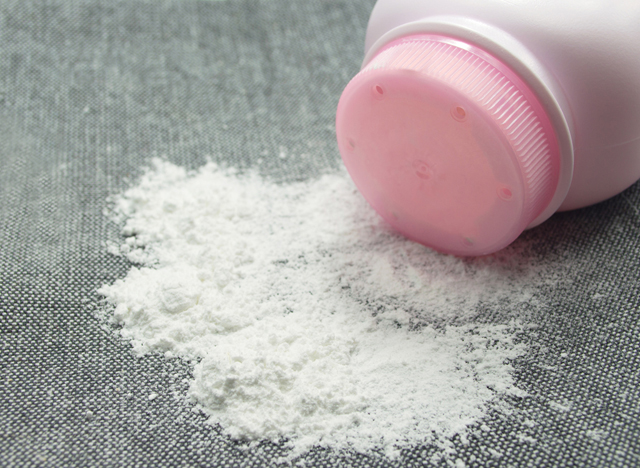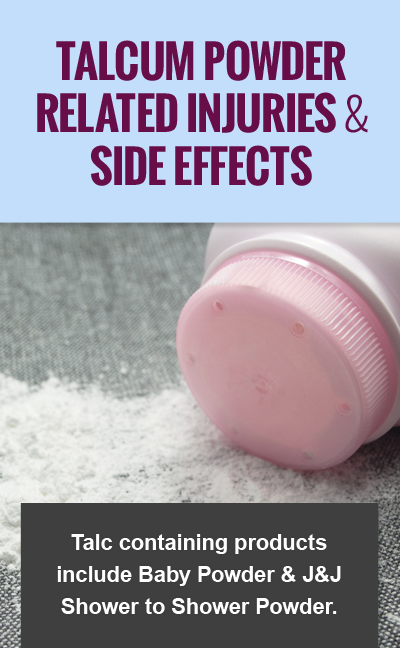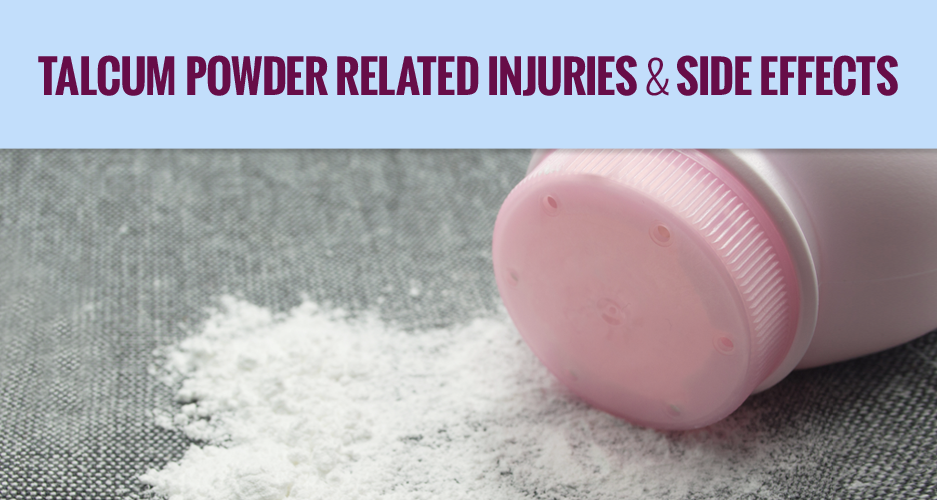Talcum powder can be found in nearly every home in America, commonly used by mothers, nurses and nannies to absorb moisture and treat diaper rash and minor skin irritations. Generations of women have also used talc-based products like Johnson & Johnson’s Baby Powder and Shower-to-Shower body powder for feminine hygiene purposes, dusting the powder on sanitary napkins or in their underwear to stay fresh and prevent vaginal odor. However, a growing body of research has shown that talcum powder applied to the genital area may increase the risk of ovarian cancer, uterine cancer and cervical cancer, and some women are suing Johnson & Johnson and other manufacturers because of this risk.

Link Between Talcum Powder and Cancer
The first study to find a link between talc-based body powders and cancer was published in 1971, when researchers found that 75% of the ovarian tumors they examined contained talc particles, and a growing body of research has reached similar conclusions, linking talc powder applied to the genital area to a higher risk of ovarian, uterine and cervical cancers. According to one of the more recent talcum powder cancer studies, published in the journal Cancer Prevention Research in 2013, women who dusted their groin area with talcum powder had a 20% to 30% greater risk of ovarian cancer, compared to women who did not use talc powder for personal hygiene.
Talcum Powder and Ovarian Cancer
According to research, talcum powder applied to the genital area may travel through the vagina, into the uterus, and along the fallopian tubes to the ovaries, possibly increasing the risk of ovarian cancer. While many women with ovarian cancer experience no signs of the disease, some may exhibit symptoms like weight loss, unexplained fatigue, and pain in the abdomen or pelvis. Unfortunately, because symptoms of ovarian cancer are often nonexistent during the early stages of the disease, the cancer often goes undetected until it has spread within the pelvis and abdomen. At this late stage, treatment for ovarian cancer is more difficult, and the disease can be fatal.
Talcum Powder and Uterine Cancer
In a study published in the medical journal Cancer Epidemiology, Biomarkers and Prevention in 2010, researchers found that talcum powder increased the risk of uterine cancer by as much as 24% in women who used the powder on their genital area at least once a week. Most instances of uterine cancer begin in the layer of cells that form the lining of the uterus, and symptoms of the disease may include vaginal bleeding after menopause and bleeding between periods. Treatment for uterine cancer typically involves surgery to remove the uterus, although advanced cases may require chemotherapy or radiation treatment.
Talcum Powder and Cervical Cancer
Research has shown that talcum powder used for feminine hygiene may also increase the risk of cervical cancer, a malignant tumor of the cervix, or the lowermost portion of the uterus. In the same 1971 study that found an increased risk of ovarian cancer with the use of talcum powder on the genital area, researchers also found talc particles deeply embedded in 12 of 21 cervical tumors they tested. Cervical cancer often occurs with few or no symptoms, but some women with the disease may experience pain in the pelvis, abnormal vaginal bleeding or discharge, and fatigue, weight loss or nausea.
Contact a Reputable Talcum Powder Attorney Today
Women across the country who have been diagnosed with ovarian cancer, uterine cancer or cervical cancer allegedly caused by regular use of talcum powder for feminine hygiene are now pursuing legal claims against Johnson & Johnson, alleging that the company failed to provide women with adequate warnings about this serious risk. If you believe you have been harmed by alleged side effects of talcum powder products like J&J’s Baby Powder or Shower-to-Shower body powder, contact a knowledgeable product liability lawyer today to discuss the possibility of filing a talcum powder lawsuit against Johnson & Johnson.






